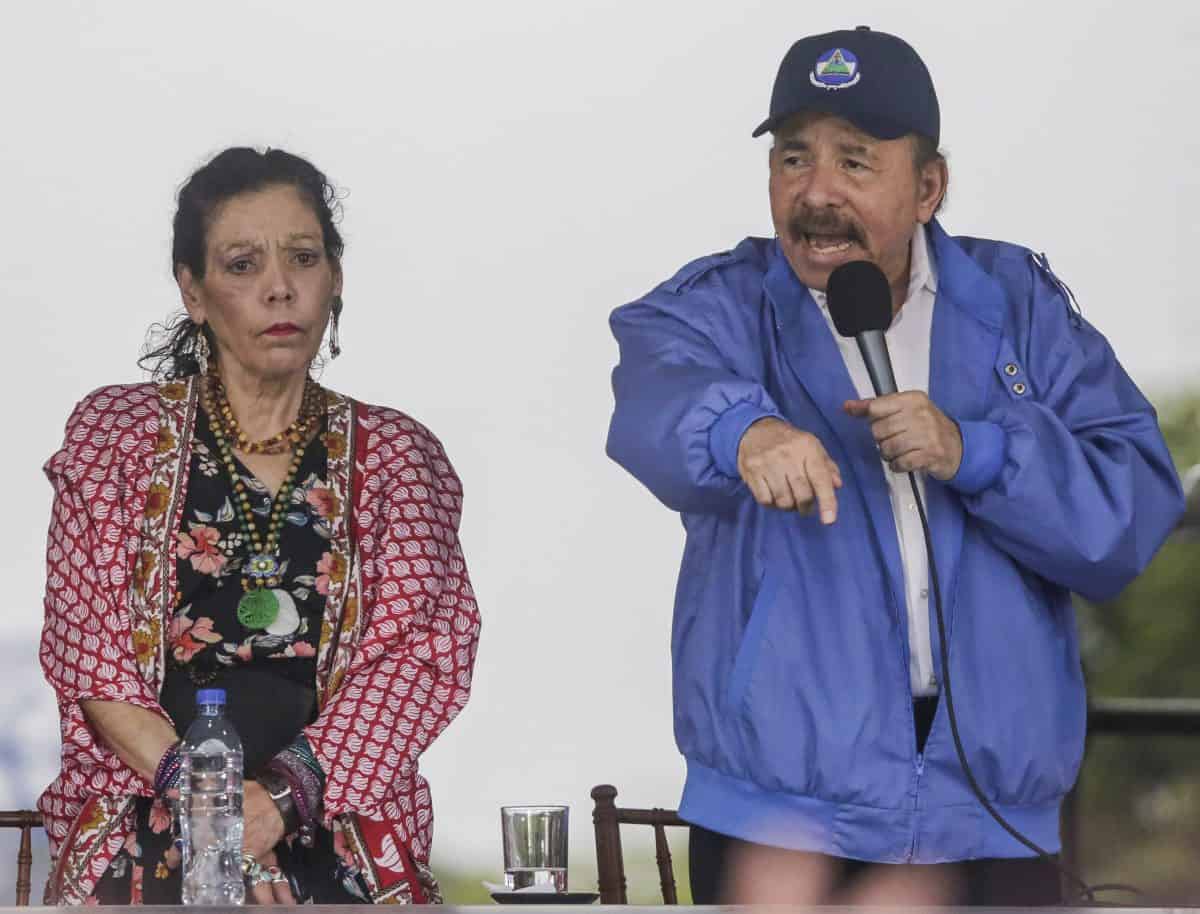Nicaraguan President Daniel Ortega on Tuesday considered it “impossible” to have a dialogue with the United States, which keeps his government under sanctions for imprisoning dozens of opponents and “undermining democratic institutions.”
“Dialogue is impossible, dialogues [with the US] is to put a noose around your neck,” said Ortega, who celebrated Tuesday the 43rd anniversary of the triumph of the Sandinista revolution.
“What dialogue can there be with the devil? As Che [Guevara] said, you can’t believe the Yankees and imperialism even a little ‘like that’, because it’s the end of you. We would like to have good relations with the United States, but it is impossible,” he said.
Ortega, a 76-year-old former guerrilla in power since 2007, and his wife and vice president Rosario Murillo, led the commemoration of the triumph of the revolution that ended the Somoza dictatorship in 1979. Cuban Prime Minister Manuel Marrero and Venezuelan Foreign Minister Carlos Faría, his ideological allies, were present.
In May, Washington admitted that there was “bilateral communication” with Nicaragua and that they would continue to “press for the release of political prisoners”. Despite the tense relationship, the United States is an important trading partner of Managua.
In 2021, prior to the November general elections where Ortega was elected for a fourth consecutive term, some 40 opponents were arrested, including seven of his potential rivals.
Ortega accused them of trying to overthrow him with Washington’s support, and prosecuted them for crimes such as “undermining sovereignty”.
Meanwhile, more than a hundred went to prison after protests against his government in 2018. Washington has applied economic and diplomatic sanctions against him for his “authoritarian and anti-democratic” actions.
“The people are living a new dictatorship,” opposition groups operating from exile denounced in a statement. Murillo, the government’s only spokesperson, has assured that “the revolution is moving forward” in spite of the “peace” that the opposition tried to “snatch from us”.
Four months before the municipal elections, councilmen of the ruling Sandinista National Liberation Front (FSLN, left) took over five municipalities which were led by opposition mayors and replaced them, under the argument that their political party was outlawed by the authorities.
The government has recently dismantled NGOs dedicated to humanitarian work or freedom of expression, claiming that they do not comply with legal requirements. It also maintains tense relations with the Catholic Church.






